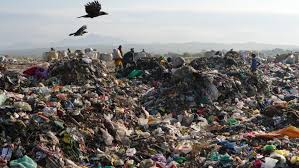
The fifth session of the Intergovernmental Negotiating Committee (INC-5) to develop an international legally binding instrument on plastic pollution has officially begun in Busan, South Korea. The historic talks aim to address the growing global plastic waste crisis, with an emphasis on curbing plastic pollution in the marine environment.
More than 175 parties, including countries and organizations, have gathered to negotiate the text for a treaty that seeks to reduce plastic pollution, which has reached alarming levels. The United Nations Environment Assembly (UNEA) first called for an international treaty on plastic pollution in 2022, following widespread public demand for stronger action against the detrimental environmental and health effects of plastic waste.
Plastic waste has been accumulating globally for decades, with over 10 billion tonnes of plastic litter now filling landfills, clogging sewage systems, and polluting rivers and oceans. Estimates show that between 8 to 10 million metric tonnes of plastic enter the oceans annually, contributing to an environmental crisis that poses serious risks to marine life, ecosystems, and human health. Microplastics, which have infiltrated human organs, have been linked to a range of serious health issues, including cancers.
The INC-5 negotiations are seen as a pivotal moment in the global effort to address this crisis. During the opening plenary, INC Chair Luis Vayas emphasized the significance of the talks, stating that plastic waste is responsible for around 80% of all marine pollution. He also highlighted the rapid rise in global plastic production, which soared from 2.3 million tonnes in 1950 to 448 million tonnes in 2015.
The treaty under discussion seeks to address various aspects of plastic pollution, including product design, supply chain management, waste management, emissions reduction, and the phasing out of problematic plastic products. The treaty also aims to provide a framework for a “just transition” for workers and communities impacted by changes to plastic production and use.
India, a key player in the negotiations, has positioned itself as a leader in the fight against single-use plastic pollution. India introduced a resolution at UNEA-4 calling for the elimination of single-use plastic products, and the country has already taken steps to phase out problematic items domestically. In 2019, India developed a criteria-based framework to identify and ban 19 single-use plastic products, including plastic carry bags, small bottles, and tea bags.
Atin Biswas, Programme Director at the Centre for Science and Environment (CSE), explained that India’s efforts could serve as a model for global action, offering a science-based approach to tackling single-use plastics. “India’s criteria-based framework, developed in consultation with other member states, can form the foundation for a global framework to address avoidable plastic products,” he said in a statement.
Despite the progress made, the negotiations have been marked by some key points of contention. One major issue is whether the treaty should address “upstream” plastic production or focus solely on managing “downstream” plastic waste. While some countries advocate for tackling plastic production at its source, most parties are focused on waste management and addressing existing plastic pollution.
Another area of disagreement concerns the use of harmful chemicals in plastics, with discussions underway on how to identify and regulate these substances. There are also concerns about financing the transition to more sustainable plastic production and consumption, with calls for a multilateral financial mechanism to support the treaty’s implementation.
The outcome of the INC-5 session will likely shape the global framework for addressing plastic pollution in the coming years. Experts stress the importance of a comprehensive approach that includes not only measures to reduce plastic waste but also strategies to curb plastic production and promote the use of alternative materials.
The UN talks will continue throughout the week, with the hope that an agreement can be reached on a legally binding treaty to combat plastic pollution on a global scale. The treaty is seen as a critical step toward mitigating the environmental and health impacts of plastic waste and ensuring a more sustainable future for the planet.
As the talks unfold, world leaders and environmental advocates are watching closely, with high hopes for a historic agreement that could make a significant dent in one of the most pressing environmental challenges of our time.
Sources By Agencies


